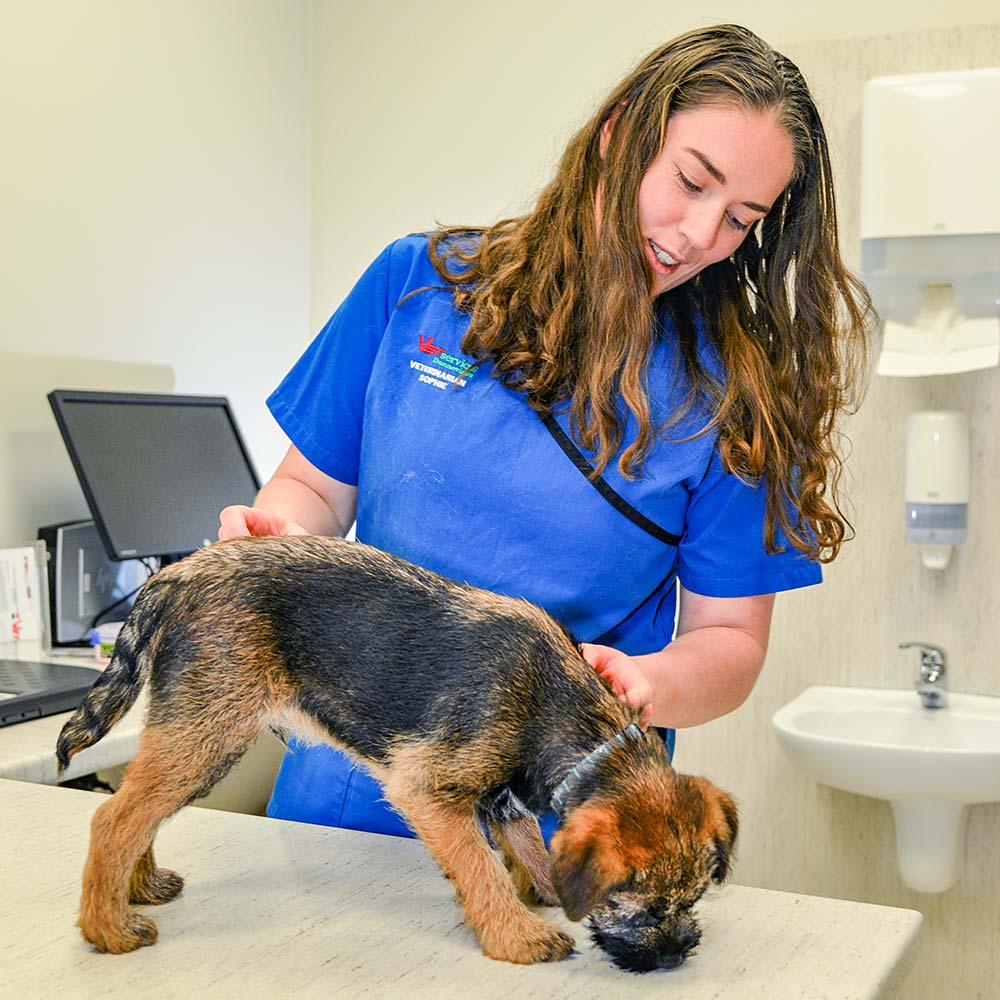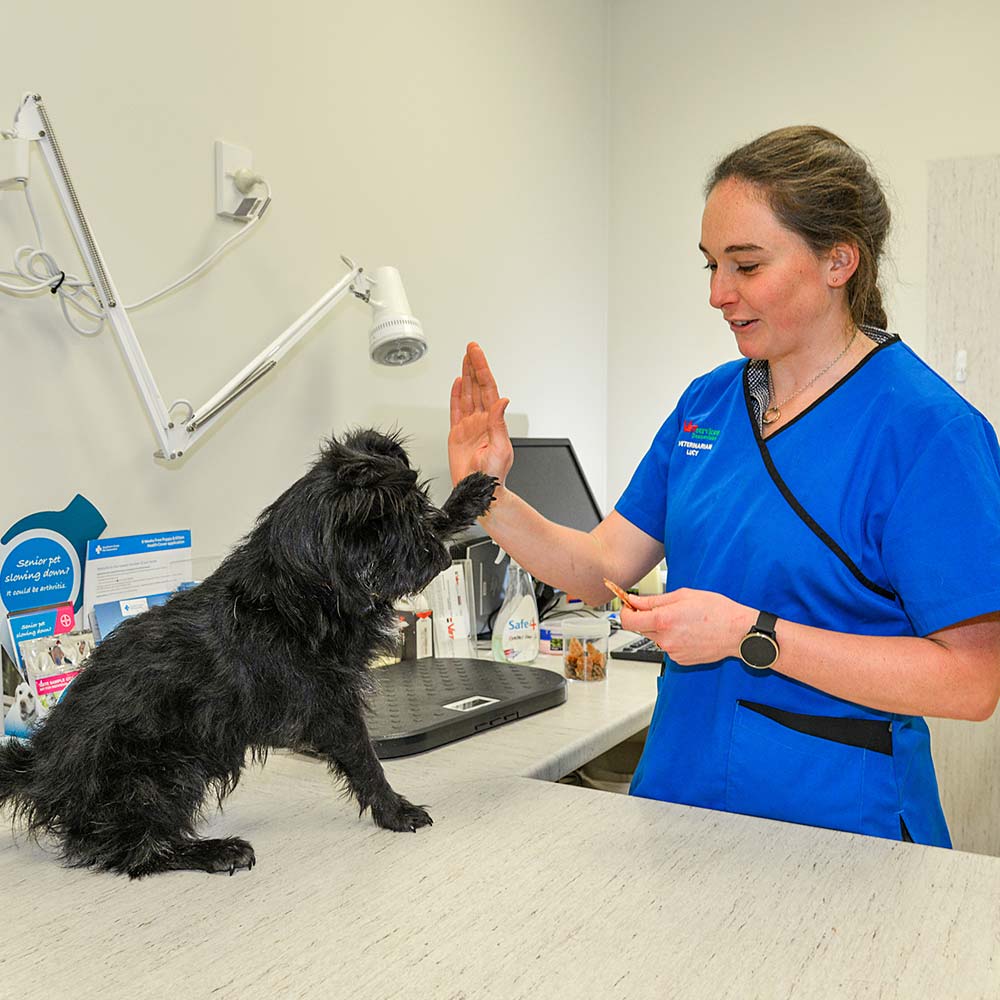Our DOG Services at a Quick Glance:
- 24/7 care with full after-hours cover
- General, Orthopaedic, Soft Tissue and Emergency Surgical Services
- Dentistry
- Vaccinations and microchipping
- Diagnostic Imagery
- Puppy School
- Nutritional advice
- Grooming
- In house Labs
- 12-month Wellness Plans
- Euthanasia
- Retail (Flea & Worm Treatment, Pet Food, Bedding, Toys, Treats and lots more)


